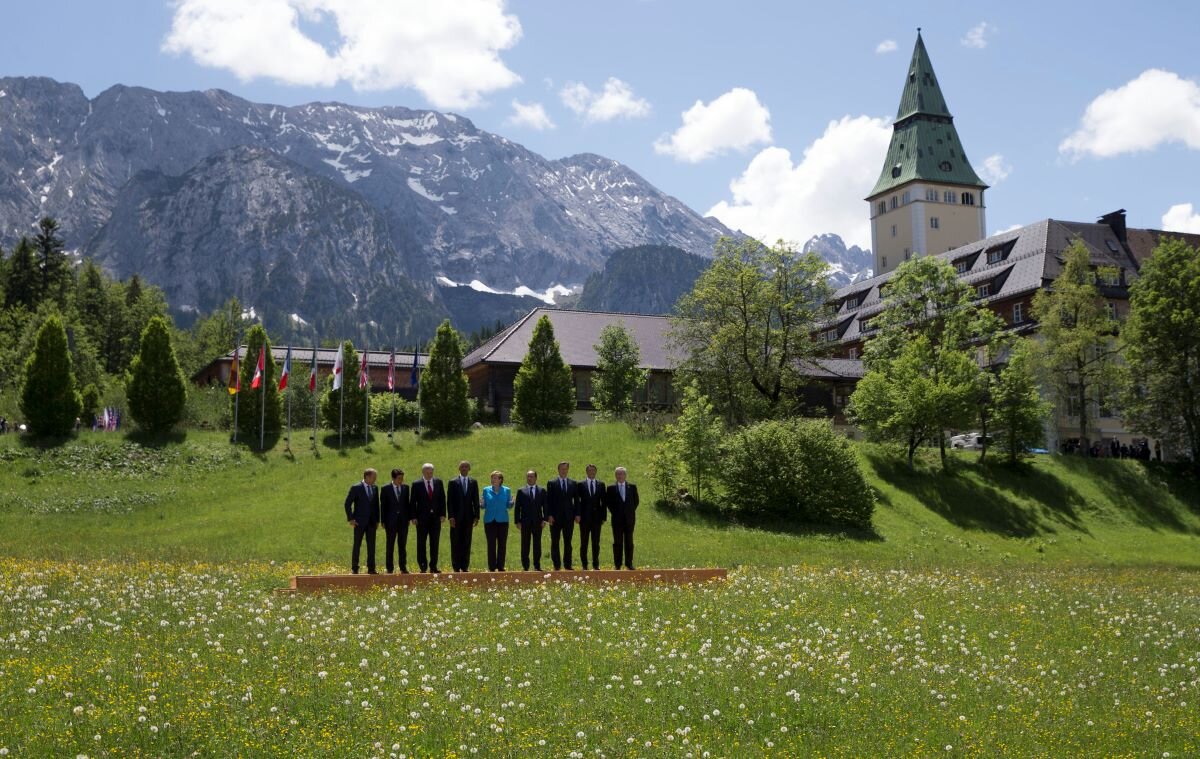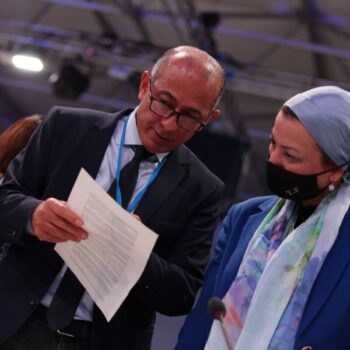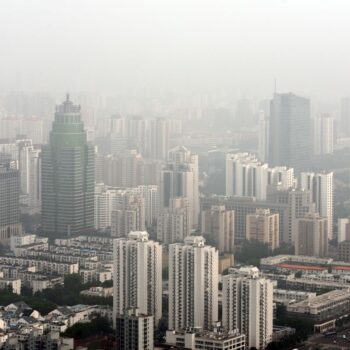2021 was an historic year for climate diplomacy. The sum of its achievements, culminating in the landmark Glasgow Climate Pact, offers a political lifeline to accelerate climate action in the next few years.
Yet for all its success, it has left much work to do. Adaptation and loss and damage are still far from comprehensively addressed. Mitigation ambition falls short of a 1.5˚C pathway, especially when taking into account the need for far greater implementation to deliver against countries’ current climate plans. Critical to these challenges is finance, and COP26 saw emerging political appetite – from the speeches of Mia Mottley and Mario Draghi and the example of South Africa’s Just Energy Transition partnership– for a step-change in unlocking finance for resilience and clean transition.
Hopes of limiting warming to 1.5˚C – and the very future of communities on the frontline of the climate crisis – are on a knife-edge. As COP26 President Alok Sharma said, the commitments made last year mean nothing unless they’re turned into action – and are accompanied by even more ambitious commitments in the next year or two.
A challenging context
The path to addressing these matters is far from smooth. Geopolitical crises, from Ukraine to Omicron, continue to engulf political attention. Many leaders – Biden, Sharma, Kerry, Timmermans, Guterres, among others – spent significant political capital to secure outcomes at COP26. The stars were aligned in 2021: the UK and Italy held the presidencies of the G7, G20 and COP26. Coordinating the new German coalition government G7, Indonesian G20 and Egyptian COP27 Presidencies this year inevitably will be less straightforward.
Domestic challenges abound too. The US continues to struggle with climate legislation, and looming mid-term elections raise fresh doubts over the credibility of its diplomacy. President Xi hopes to win a third term at China’s Party Congress this fall and will be reluctant to appear to be kowtowing to the West by raising China’s near-term climate ambition. Elections in Brazil, France and Australia – and political uncertainty in the UK – may also have significant consequences for the climate if incumbents depart.
Climate diplomacy opportunities
This political context should not paralyse climate actors. The publication of the Intergovernmental Panel on Climate Change’s latest assessment reports will provide crucial reminders to diplomats that every moment this year matters in the fight against climate change.
The German G7 has already set its sights on building new partnerships aimed at accelerating Paris implementation, whether through a new open ‘climate club’, scaling up sustainable infrastructure investment, or delivering serious proposals to mobilise much greater levels of finance to address loss and damage. The ability of G7 countries to deliver on the infrastructure investment pledges made at last year’s leaders’ summit in Carbis Bay will be crucial to delivering on the Indonesian G20, with its core priority of sustainable energy transition.
Yet the question of how to establish the right partnerships and financing for climate transitions is not limited to these settings. Governments outside these fora will be wondering whether a dedicated summit on global investment for sustainable development could help these solutions transcend the G7/G20.
Plenty of other opportunities exist outside the Gs. The UK and Egypt are resolved to work hand-in-glove as the current COP26 and incoming COP27 Presidencies to deliver on the Glasgow Climate Pact. Issues of solidarity and equity are a priority for the African COP and sure to be a flashpoint at the UNFCCC Subsidiary Body meetings in June, where dialogues on loss and damage, adaptation and climate finance are set to commence. All of these can be further addressed at a political level at Germany’s annual Petersberg Climate Dialogue, rumoured for July.
A number of actors are in prime position to step up engagement on these solidarity issues throughout the year, from the newly formed Champions Group on Adaptation Finance to the continuation of the UK-Fiji Taskforce on Access to Finance. Bringing together these actors at a second Climate & Development Ministerial could help drag these priorities out of the UNFCCC negotiating rooms and into the hands of finance, development and foreign ministers, to address wider concerns at this nexus – increasing fiscal space, improving climate finance quality, and clean, fair, resilient recoveries. Germany’s intention to use the G7 Development Ministers’ meeting in May to agree on a “Global Shield” financing package to address various aspects of developing country loss and damage from mounting climate impacts could also build trust and momentum in the run-up to COP27. However, it needs to result in a serious proposal to take into the first Glasgow loss and damage dialogue session in Bonn this June.
2021 has bequeathed a whole array of initiatives and coalitions that could spur on diplomacy this year – the Beyond Oil and Gas Alliance, the Global Methane Pledge, the Glasgow Breakthroughs, the list goes on. It will be critical to ensure their integrity and accountability and orchestrate an effective architecture for their governance. This task could fall to the likes of the Major Economies Forum. President Biden has pledged to convene a MEF leaders’ summit later this year with rumours that it could take place as early as April, building on January’s ministerial where options for collective action on methane, deforestation, power and electric vehicles were identified. Other opportunities include February’s International Energy Agency Ministerial and the US-hosted Clean Energy Ministerial-Mission Innovation summits in Pittsburgh in September, and possible leader-level and/or ministerial consultations on the margins of the opening of the UN General Assembly.
In Part II of this blog, we dive into the key diplomatic tasks for climate actors to deliver across these multilateral milestones. Read it here.
This article was released as part of E3G’s February 2022 newsletter, Climate diplomacy in 2022: shaping the rhythm of delivery. Subscribe to future E3G newsletters here.


